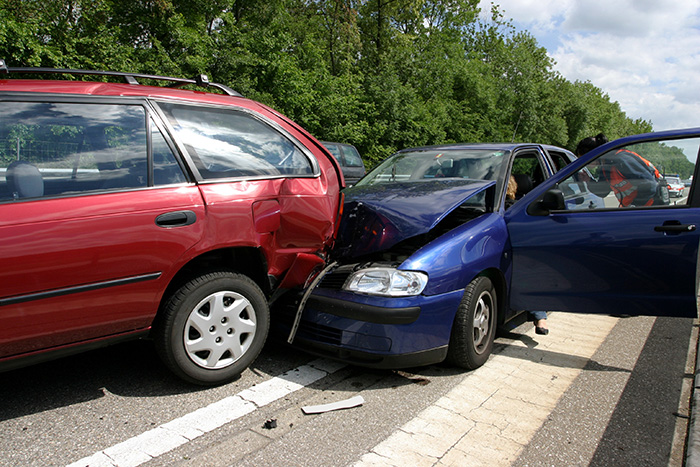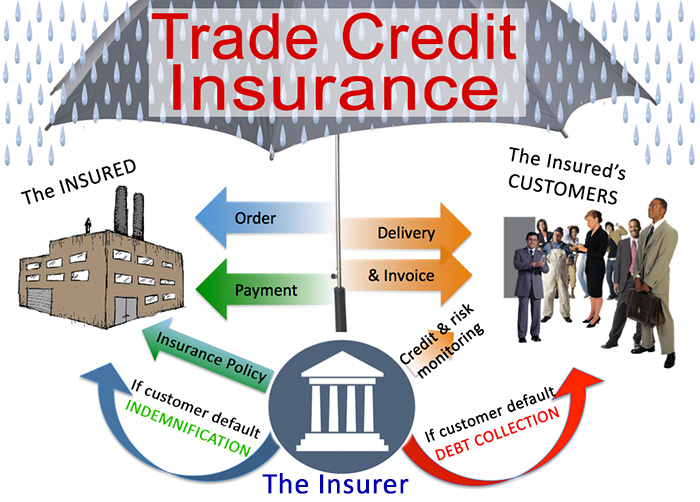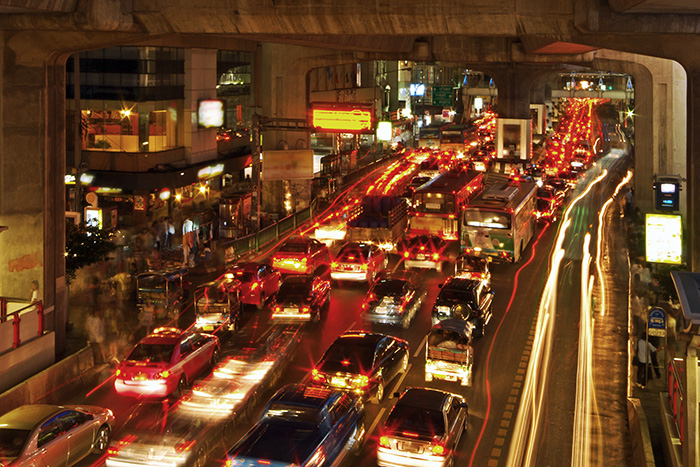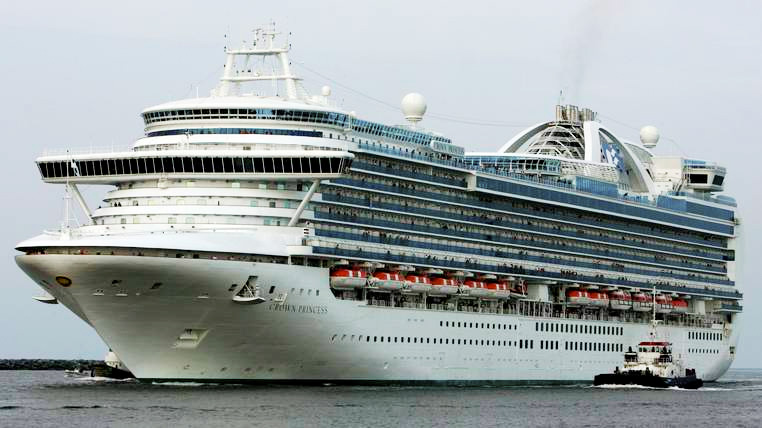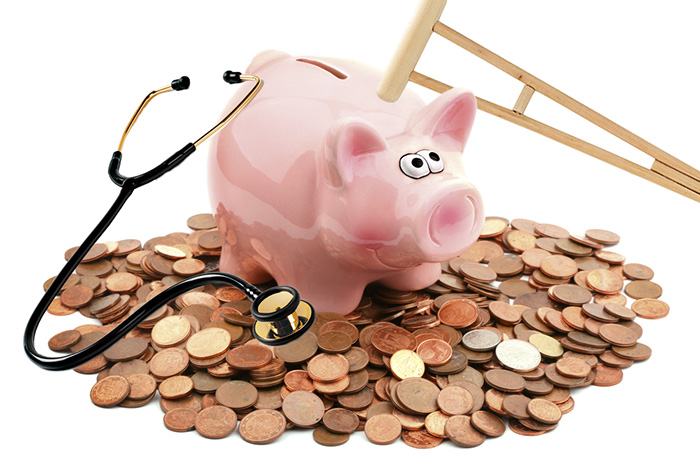What to do in the event of a motor accident in Thailand – Part 2.
In Part 1 we explained how the Knock for Knock agreement can potentially save you time if you are involved in a motor accident. In this second part of our report we examine the situation where the Knock for Knock agreement is not applicable or cannot be used.
In the event of an accident, please try not to panic, remain calm and keep safe. Make sure nobody is injured and try to move everyone to a safe location. If there are injured parties, call the emergency services. If you suspect that there are injuries to someone’s back or neck, try not to move them but make them as comfortable as possible until the ambulance arrives.
When the Knock for Knock agreement document CANNOT be used, here’s what to do.
Whether or not you are or believe you are at fault:
- Note down the registration number, make and color of the other vehicle. Almost everyone carries a mobile phone, so it is easier to take a few photos of the scene of accident and the registration number of the other vehicle.
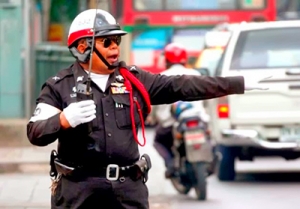
- Ask the other party for their name, address and telephone number. Offer to show them your driving license and ask that they do the same. If possible take a photo of the license.
- Write down the name and address of any witness(es).
- If the other party admits liability ask him/her to sign a liability note for further recovery action.
- If your vehicle is causing an obstruction or endangering other road users, take a few photos of the scene of accident and get agree with the other party to move the vehicles to a safe place.
- Call your insurer to notify them of the claim.
- Even if you think you may have been at fault do not sign anything admitting liability without the agreement of the insurer.
If there is any doubt in your mind about whose fault it is:
- Do not move your vehicle from the scene of accident until a policeman has marked the position and direction of your vehicle on the road and you are instructed to do so.
- Call your insurer to notify the claim.
- Most insurers promise to have one of their surveyors on the scene within 45 minutes. While you are waiting for the surveyor to arrive, take a few photos of the scene of accident and also the registration number of the other vehicle. This may be useful if the police arrive and ask you to move the cars without first marking the road.
How do you notify the claim to your insurer?
- Call the insurer or the surveyor as soon as possible. Their contact details should be shown on a sticker placed on your windscreen. The sticker is usually issued together with your insurance policy. Make sure you have the sticker when your broker or insurer delivers the policy to you.
- The insurer will usually ask for your car registration number (and possibly your policy number). All companies nowadays should be able to trace your records by just informing them of your car registration number. They will also ask you for your location, how the accident happened, along with your mobile number so that the surveyor can contact you.
- Remember to ask the name of the person taking your call just in case the surveyor takes too long to arrive and you need to follow up, or in the event you need to go to hospital or police station.
In case the accident has resulted in bodily injury, here’s what you should do:
- It does not matter who is at fault in the accident. It does not matter if the surveyor still has not arrived to attend the claim. If there is a serious injury, it is a priority to take the injured person(s) to the nearest hospital. There should be no need to go to the hospital if the injury is minor and can wait until all is sorted out with the insurer.
- Please do not forget to ask for medical bills and the doctor’s certificate as evidence to submit to your Insurer for reimbursement later. Alternatively, you can claim the medical expenses under your Compulsory Motor Insurance, a topic we will address in a future article.
- Report the accident to the nearest police station as necessary.
- Advise your insurer if you are detained by the police for any reason. They should then arrange the proper amount of security to post bail so that you can leave the police station as soon as possible.
- It is important to know that the police have no right to hold you at the station unless there has been a serious injury that would result in a lengthy hospital stay.
- Be aware that if you flee the scene of the accident, it is likely to be regarded as an admission of guilt. If you did have to leave the scene of the accident you should report to the police station as soon as possible.
- Again, even if you think you may have been at fault, do not sign anything admitting liability without the agreement of the insurer.
If you are unable to identify the other party:
If the other party leaves the scene of the accident prematurely you must notify the nearest police station. Give them as much information as you can about the other party, including the registration number of the vehicle if possible.
Make sure you obtain a copy of the police report as the insurer will require this.
When your vehicle is retained by police:
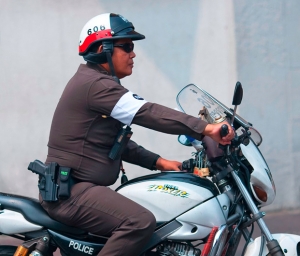 The Police are entitled to detain the vehicle(s) involved in the accident for further investigation if it is apparent that either or both parties have broken the law. If your vehicle is detained, you should ask the policeman to note down the items of valuable property inside your vehicle, into the police daily report as evidence of your belongings.
The Police are entitled to detain the vehicle(s) involved in the accident for further investigation if it is apparent that either or both parties have broken the law. If your vehicle is detained, you should ask the policeman to note down the items of valuable property inside your vehicle, into the police daily report as evidence of your belongings.
In the event your vehicle is not driveable:
You or your insurer will need to co-ordinate the removal of your vehicle to the nearest garage so that your vehicle can be repaired. If you have to make payment, please keep the receipt and send to your broker or insurer for reimbursement under the claim process.
— o — — o —
We hope you have found this article interesting – and useful, and also hope you do not find yourself in an accident having need of this information. Please refer back to Part 1 for a recap of the Knock for Knock agreement.
If you have any questions relating to this article or in regard to motor vehicle insurance generally, we would be very pleased if you contacted us.

